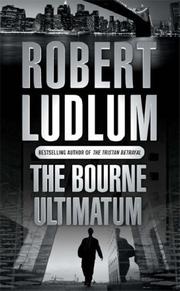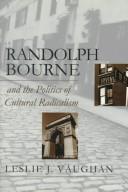| Listing 1 - 5 of 5 |
Sort by
|

ISBN: 0752858491 9780752858494 9780752879437 075287943X Year: 2004 Publisher: London Orion
Abstract | Keywords | Export | Availability | Bookmark
 Loading...
Loading...Choose an application
- Reference Manager
- EndNote
- RefWorks (Direct export to RefWorks)
Counter The world's two deadliest spies in the ultimate showdown. At a small-town carnival two men, each mysteriously summoned by telegram, witness a bizarre killing. The telegrams are signed Jason Bourne. Only they know Bourne's true identity and understand the telegram is really a message from Bourne's mortal enemy, Carlos, known also as the Jackal, the world's deadliest and most elusive terrorist. And furthermore, they know that the Jackal wants: a final confrontation with Bourne. Now David Webb, professor of Oriental studies, husband, and father, must do what he hoped he would never have to do again -- assume the terrible identity of Jason Bourne. His plan is simple: to infiltrate the politically and economically Medusan group and use himself as bait to lure the cunning Jackal into a deadly trap -- a trap from which only one of them will escape.
Book
ISBN: 0874178495 9780874178494 9780874177862 0874177863 Year: 2009 Publisher: Reno University of Nevada Press
Abstract | Keywords | Export | Availability | Bookmark
 Loading...
Loading...Choose an application
- Reference Manager
- EndNote
- RefWorks (Direct export to RefWorks)
Businessmen --- Pioneers --- Biography. --- Bourne family. --- Bourn, William, --- San Francisco (Calif.) --- History.
Book
ISBN: 0807173924 0807173932 9780807173930 9780807173923 9780807172667 Year: 2020 Publisher: Baton Rouge
Abstract | Keywords | Export | Availability | Bookmark
 Loading...
Loading...Choose an application
- Reference Manager
- EndNote
- RefWorks (Direct export to RefWorks)
"George Bourne (1780-1845) was one of early American Republic's first immediate abolitionists, an influential figure who helped prepare the way for the campaign against slavery in the antebellum period. His radicalism, however, was tied to an ultra-Protestantism, at the center of which was a virulent hostility to Catholicism. Ryan McIlhenny's trenchant analysis of Bourne is among the first studies to focus on his complicated, if somewhat paradoxical, ideology by examining both his pioneering efforts in abolitionism as well as the development of his anti-Catholic writings in his approach to reform. In "To Preach Deliverance to the Captives," McIlhenny suggests that while Bourne presents a significant challenge for the contemporary mind because he was a traditionalist and a progressive, a liberal emancipationist and a religiously intolerant dogmatist, his beliefs offer a glimpse into a unique the nineteenth-century mentality. Bourne's commentary on a variety of controversial topics - he had strong opinions on slavery, race, and citizenship; the role of women; Christianity and republicanism; the importance of the Bible; and the place of the church in civil society - put him at the center of debates about these issues. Bourne remains a complex figure, a polymath situated within the political, social, and cultural possibilities indicative of the early Republic. He understood the developing nature of the young nation and was eager to play a part in shaping it. In this first-ever comprehensive assessment of Bourne, McIlhenny reveals that his religious radicalism, which drew on the sixteenth-century Protestant Reformation, gave shape to his hopes for an emerging post-revolutionary republic that would focus mainly on its religious foundations. The strength of the American nation, in Bourne's mind, rested not only on institutions indicative of a republican form of government but also on a pure Christianity, exemplified best in historical Protestantism. To Bourne, the nation depended not only on principles or institutions but on the activism of Protestant leaders like himself, guardians of what he believed was a pure and undefiled faith against the twin evils of slavery and Catholicism"--
Antislavery movements --- Presbyterian Church --- History --- Bourne, George, --- United States --- Church history
Book
ISBN: 0520043715 0520045513 128235518X 0520906896 9786612355189 0585331278 9780520906891 9780520043718 9781282355187 9780585331270 Year: 1982 Publisher: Berkeley, CA : University of California Press,
Abstract | Keywords | Export | Availability | Bookmark
 Loading...
Loading...Choose an application
- Reference Manager
- EndNote
- RefWorks (Direct export to RefWorks)
This volume is the fourth in the Franklin K. Lane series on the governance of major metropolitan regions. The series is sponsored by the Institute of Governmental Studies and the Institute of International Studies, University of California in Berkeley. Readers of these volumes and other relevant literature will no doubt agree with the authors of this book that similar patterns are found in New York, London, Toronto, Stockholm, and indeed in ";every other major metropolitan region in the United States and in other advanced industrial societies."; The presence of such common factors and trends, although they assume different configurations in various metropolitan regions, has been demonstrated by the work of many scholars, including Peter Hall, Brian Berry, Marion Clawson, Jean Gottmann, Larry Bourne and William Robson, as well as by the authors of the other Franklin K. Lane books-Donald Foley, Albert Rose and Thomas Anton. In the present volume Michael Danielson and Jameson Doig have described and analyzed the cultural, economic, political and other social forces shaping development in the New York region. They present a picture of a region singular in its attractions, problems, geographic scope, magnitude of development, and complexity of the network of organizations involved in its governance.
Regional planning --- City planning --- Urban renewal --- Model cities --- Renewal, Urban --- Urban redevelopment --- Urban renewal projects --- Land use, Urban --- Urban policy --- New York Region --- Politics and government. --- New York Metropolitan Area --- New York Suburban Area --- academic. --- berkeley. --- book series. --- brian berry. --- california. --- collected works. --- culture. --- geography. --- government. --- industrial. --- international studies. --- jean gottmann. --- larry bourne. --- literature. --- london. --- marion clawson. --- metropolitan regions. --- metropolitan. --- new york. --- peter hall. --- political. --- politics. --- regional. --- scholarly. --- social studies. --- stockholm. --- toronto. --- volume 4. --- william robson.

ISBN: 0700608214 0700631283 0700631747 Year: 1997 Publisher: Lawrence University Press of Kansas
Abstract | Keywords | Export | Availability | Bookmark
 Loading...
Loading...Choose an application
- Reference Manager
- EndNote
- RefWorks (Direct export to RefWorks)
In the "little rebellion" that swept New York's Greenwich Village before World War I, few figures stood out more than Randolph Bourne. Hunchbacked and caped—the "little sparrowlike man" of Dos Passos' U.S.A.—Bourne was an essayist and critic most remembered today for his opposition to U.S. military involvement in Europe and his assertion that "war is the health of the state." A frequent contributor to The New Republic, he died in 1918 at the age of 32, arguing that a "militaryindustrial" complex would continue to shape the policies of the modern liberal state.Bourne is also recognized as one of the founders of American cultural radicalism, revered in turn by Marxists, antifascists, and the New Left. Through his writings, he debated issues that were cultural as well as political from a position he described as "below the battle," rejecting the either/or political options of his day in favor of a viewpoint that argued outside the terms set by the establishment.In her new study of Bourne's political thought, Leslie Vaughan maintains that this position was not, as others have contended, a retreat from politics but rather a different form of political engagement, freed from the suppositions that impede genuine debate and democratic change. Her analysis challenges previous readings of Bourne's politics, showing that he offered nonstatist, neighborhoodbased politics in America's modern cities as a practical alternative to involvement in the national state and its militarism. By demonstrating Bourne's emphasis on politics as local, multiethnic, and intergenerational, Vaughan shows that his thought offered a new political discourse and set of cultural possibilities for American society in an era he was the first to label as "postmodern." Returning to the influence of Nietzsche on his thought, she also explores the role Bourne played in the creation of his own myth.Eighty years later, Bourne can be seen to stand at the cusp of the modern and the postmodern worlds, as he speaks to today's multiculturalist movement. In reexamining Bourne's writings, Vaughan has located the roots of twenthiethcentury radical thought while repositioning Bourne at the center of debates about the nature and limits of American liberalism.
Radicalism --- United States --- History --- 20th century --- Criticism --- Intellectual life --- 1865-1918 --- Politics and government --- 1865-1933 --- World War, 1914-1918 --- Social aspects --- radicalisme (politique) --- idees politiques --- Radicalisme --- Bourne, Randolph. --- Bourne, Randolph Silliman, --- États-Unis --- Vie intellectuelle --- ABŞ --- ABSh --- Ameerika Ühendriigid --- America (Republic) --- Amerika Birlăshmish Shtatlary --- Amerika Birlăşmi Ştatları --- Amerika Birlăşmiş Ştatları --- Amerika ka Kelenyalen Jamanaw --- Amerika Qūrama Shtattary --- Amerika Qŭshma Shtatlari --- Amerika Qushma Shtattary --- Amerika (Republic) --- Amerikai Egyesült Államok --- Amerikanʹ Veĭtʹsėndi︠a︡vks Shtattnė --- Amerikări Pĕrleshu̇llĕ Shtatsem --- Amerikas Forenede Stater --- Amerikayi Miatsʻyal Nahangner --- Ameriketako Estatu Batuak --- Amirika Carékat --- AQSh --- Ar. ha-B. --- Arhab --- Artsot ha-Berit --- Artzois Ha'bris --- Bí-kok --- Ē.P.A. --- EE.UU. --- Egyesült Államok --- ĒPA --- Estados Unidos --- Estados Unidos da América do Norte --- Estados Unidos de América --- Estaos Xuníos --- Estaos Xuníos d'América --- Estatos Unitos --- Estatos Unitos d'America --- Estats Units d'Amèrica --- Ètats-Unis d'Amèrica --- États-Unis d'Amérique --- Fareyniḳṭe Shṭaṭn --- Feriene Steaten --- Feriene Steaten fan Amearika --- Forente stater --- FS --- Hēnomenai Politeiai Amerikēs --- Hēnōmenes Politeies tēs Amerikēs --- Hiwsisayin Amerikayi Miatsʻeal Tērutʻiwnkʻ --- Istadus Unidus --- Jungtinės Amerikos valstybės --- Mei guo --- Mei-kuo --- Meiguo --- Mî-koet --- Miatsʻyal Nahangner --- Miguk --- Na Stàitean Aonaichte --- NSA --- S.U.A. --- SAD --- Saharat ʻAmērikā --- SASht --- Severo-Amerikanskie Shtaty --- Severo-Amerikanskie Soedinennye Shtaty --- Si︠e︡vero-Amerikanskīe Soedinennye Shtaty --- Sjedinjene Američke Države --- Soedinennye Shtaty Ameriki --- Soedinennye Shtaty Severnoĭ Ameriki --- Soedinennye Shtaty Si︠e︡vernoĭ Ameriki --- Spojené obce severoamerické --- Spojené staty americké --- SShA --- Stadoù-Unanet Amerika --- Stáit Aontaithe Mheiriceá --- Stany Zjednoczone --- Stati Uniti --- Stati Uniti d'America --- Stâts Unîts --- Stâts Unîts di Americhe --- Steatyn Unnaneysit --- Steatyn Unnaneysit America --- SUA (Stati Uniti d'America) --- Sŭedineni amerikanski shtati --- Sŭedinenite shtati --- Tetã peteĩ reko Amérikagua --- U.S. --- U.S.A. --- United States of America --- Unol Daleithiau --- Unol Daleithiau America --- Unuiĝintaj Ŝtatoj de Ameriko --- US --- USA --- Usono --- Vaeinigte Staatn --- Vaeinigte Staatn vo Amerika --- Vereinigte Staaten --- Vereinigte Staaten von Amerika --- Verenigde State van Amerika --- Verenigde Staten --- VS --- VSA --- Wááshindoon Bikéyah Ałhidadiidzooígíí --- Wilāyāt al-Muttaḥidah --- Wilāyāt al-Muttaḥidah al-Amirīkīyah --- Wilāyāt al-Muttaḥidah al-Amrīkīyah --- Yhdysvallat --- Yunaeted Stet --- Yunaeted Stet blong Amerika --- ZDA --- Združene države Amerike --- Zʹi︠e︡dnani Derz︠h︡avy Ameryky --- Zjadnośone staty Ameriki --- Zluchanyi︠a︡ Shtaty Ameryki --- Zlucheni Derz︠h︡avy --- ZSA --- Η.Π.Α. --- Ηνωμένες Πολιτείες της Αμερικής --- Америка (Republic) --- Американь Вейтьсэндявкс Штаттнэ --- Америкӑри Пӗрлешӳллӗ Штатсем --- САЩ --- Съединените щати --- Злучаныя Штаты Амерыкі --- ولايات المتحدة --- ولايات المتّحدة الأمريكيّة --- ولايات المتحدة الامريكية --- 미국 --- É.-U. --- ÉU --- Political science & theory --- Amerik --- Америк --- Amerikiĭn Nėgdsėn Uls --- Америкийн Нэгдсэн Улс --- ANU --- АНУ --- Северо-Американские Штаты --- Северо-Американские Соединенные Штаты --- Сѣверо-Американскіе Соединенные Штаты --- Соединенные Штаты Америки --- Соединенные Штаты Северной Америки --- Соединенные Штаты Сѣверной Америки --- США --- ЗДА --- Зьєднані Держави Америки
| Listing 1 - 5 of 5 |
Sort by
|

 Search
Search Feedback
Feedback About UniCat
About UniCat  Help
Help News
News